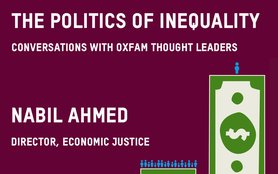Founded in 1999, the G20 brings together the world’s major economies. At the G20 Summit this October, the US can and should lead the way on concrete, actionable commitments to deliver an equitable recovery from the COVID-19 crisis—one that supports countries which have been hit the hardest.
At the recent G20 Finance Ministers meeting in Italy, US Secretary of the Treasury Janet Yellen insisted that America is “back,” and spoke about the administration’s intent to re-embrace multilateralism. “We can solve problems together that we can’t solve alone,” she said.
But can the US deliver meaningful solutions through the G20 that address the deep inequities that COVID-19 has laid bare?
While compromise is expected, the G20 is a unique opportunity for ambitious solutions to the ongoing health and economic crises; it’s an important opportunity for the Biden administration to reaffirm its commitment to multilateralism and demonstrate leadership in international negotiations.
The US has taken strong positions on important issues at the G20 so far, but more needs to be done to reach an agreement that will get the pandemic under control and support developing countries on their path to equitable and sustainable recovery.
We hope to see the US exercise leadership on the key issues that will get us there.
The meeting of the G20 Finance Ministers was only one among several over the course of this year that will lead up to the G20 Summit in October, where we hope to see real progress on these issues.



